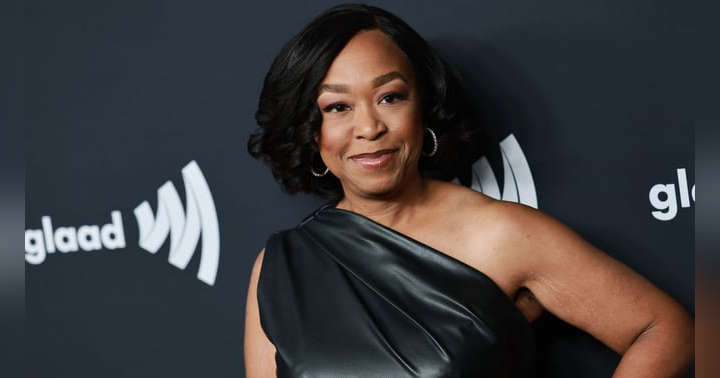Coaching Gen Z, Coaching Himself: How Injil Muhammad Built a Business That Works Both Ways

Injil Muhammad went from “just a little project” to leading a company that’s reshaping how Gen-Z talent thrives in the workplace. What began as an AI-driven tool evolved through missteps, pivots, and insights into Buddle, a full-fledged retention partner for companies invested in their early-career workforce. In this edition of the Wantrepreneur to Entrepreneur Spotlight, Injil shares how he transformed a technical passion into a business rooted in solving real, urgent problems for the actual buyers and why content creation and bold timing were key catalysts in his leap from employee to founder.
Hi, Injil! Thanks for joining us today. Tell us about your business. Who do you serve, how do you serve them, and what's the impact that your business and work makes?
Buddle helps companies engage and retain their Gen-Z talent. Through our AI platform, 1-on-1 coaching, and consulting framework, we equip early-career professionals with the soft skills needed to succeed from day one. Closing this gap creates a more productive, sustainable workforce and addresses the often heavily overlooked financial drain of early-career turnover.
Tell us about the moment you finally felt like you went from wantrepreneur to entrepreneur.
When we actually saw the money hit the account from our first client. Before, it was "just a little project," but once there's true value and dollars being exchanged, it's a real business.
Describe the moment or period in your life/career that motivated you to make the entrepreneurial leap.
I had a conversation with a mentor about how things were going at work. I told them that I was having a great time; I really liked my team, thought I was doing really intellectually stimulating work, and had opportunities for growth. However, I did mention that long-term, I felt that entrepreneurship was something I wanted to pursue. They sort of stopped for a second and said, "well if you want to be an entrepreneur, there's no better time than now. You don't have any kids, a mortgage, you're not married, etc. Waiting until you 'have everything figured out' just makes things more complicated."
I quit 2 weeks later.
Describe a tool, service, or software that has been a game-changer for your business. How does it contribute to your success?
Framer has been an incredible tool for building the website. It strikes the perfect balance of allowing flexibility while not providing too much exposure to how complicated the process can be when you start off with a blank slate. Additionally, its seamless integrations with other tools and deep resource base, both on its website and YouTube, have made it easy to make changes as the company has evolved.
We know that success is very often a non-linear path. Tell us about a failure, pivot point, or lesson that changed your course or direction and helped to get you where you are today.
When I launched Buddle, I was focused on one thing: building an AI platform for early-career professional development. I poured myself into developing the tech, spoke to users, and trained the model myself. But I made a foundational mistake: I built something for the user without thinking enough about who the customer was.
Our users (junior professionals) were intrigued. But when we brought it to companies, the ones who would actually be paying for it, the response was lukewarm. They saw it as an interesting idea, not a must-have solution. One enterprise buyer even said, “This is a nice project. Good for you.” That was humbling.
And that’s when we had a hard pivot: from “this is an AI tool for Gen Z employees” to “we are a retention partner for companies who hire Gen Z.” We reframed everything around solving a pain point that companies actually cared about: keeping young talent engaged and productive. We added human coaching, a consulting layer, and repositioned AI as a tool, not the product itself.
That experience taught me that product-market fit is not about building something cool; it’s about solving a problem that’s urgent for the person who pays you. That shift in mindset changed everything for us.
What unconventional strategy did you employ that significantly impacted your business?
Not sure how unconventional it is, but I leaned heavily into content creation before I really knew if it could have any impact on my business. The act of posting 5 days a week on LinkedIn has helped me practice storytelling, and gives me many more at-bats than I would have just speaking with prospects 1-on-1. Additionally, because I have been able to very clearly document how I was thinking about the business over the course of even weeks or months, I have a much more vivid picture of the levers to pull to potentially make changes. Clients I didn't even know followed me have mentioned my posts on prospecting calls, so I certainly think it has been worth it.
What’s something you wish you knew sooner that you’d give as advice for aspiring or newer entrepreneurs?
Talk to your customers before you build. And when I say customers, I don’t mean just your users, as those are not always the same people.
I wish someone had emphasized this distinction for me early on. I spent months talking to end users, iterating on a product they liked, and assuming that enthusiasm would translate into revenue. It didn’t. Because our users weren’t the ones writing the checks. Our actual customers were heads of HR and talent development, and they had completely different needs and constraints.
If I could do it over, I would’ve spent far more time upfront in discovery conversations with the people who hold the budget. I would’ve asked better questions, like: What are you already spending money on? What’s broken? What have you tried that didn’t work?
It’s easy to get caught up in building. But validating the problem from the perspective of the buyer will save you months, maybe even years. Users matter, but customers keep you alive.
Want to dive deeper into Injil's work? Learn more by following the links below:
- Visit Buddle's website buddleplatform.com
- Connect with Injil on LinkedIn: Injil Muhammad Jr.





